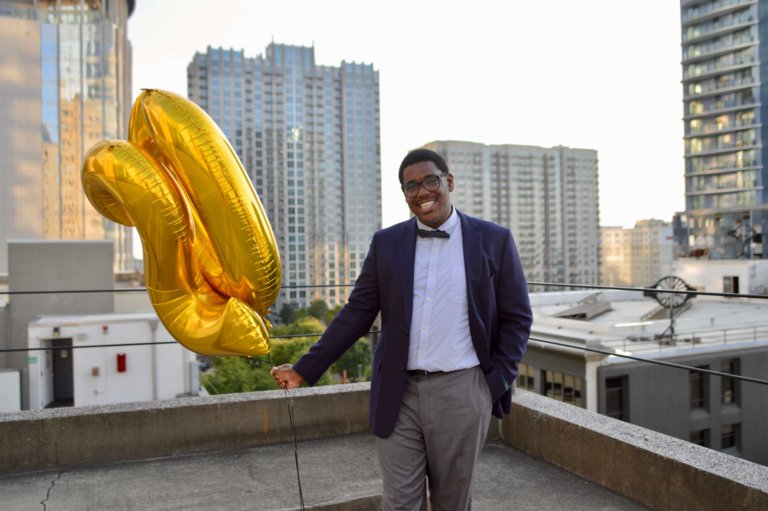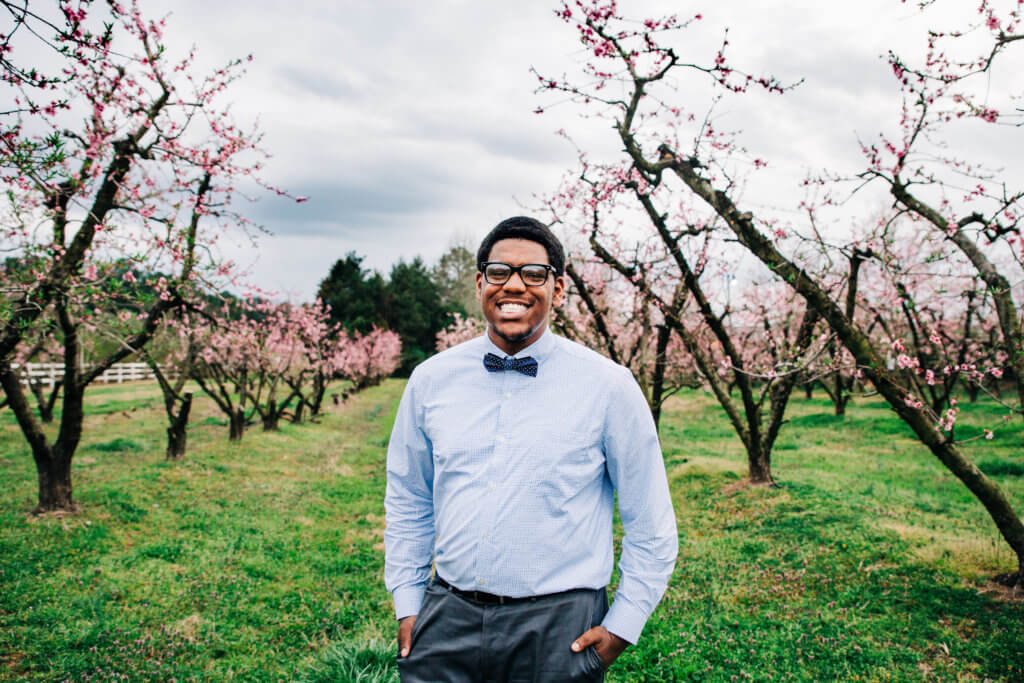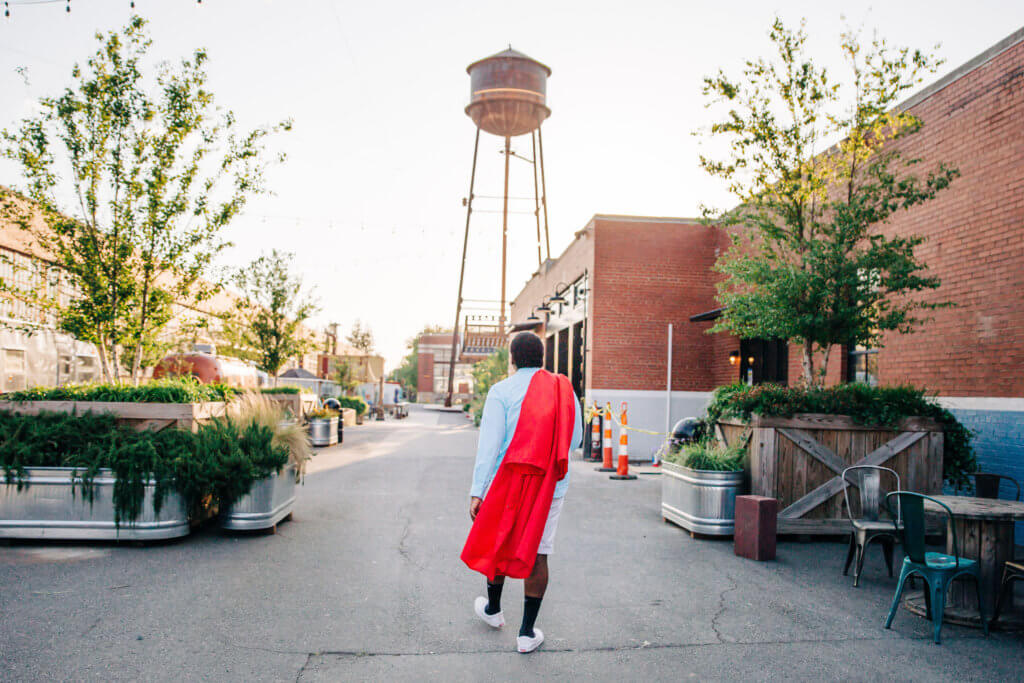
Being an environmental sciences major means studying within a field of physical, biological and information sciences like ecology, biology, physics, oceanography, and so on. This is what Diandre Richie is most passionate about and with this in mind, he’s set to graduate from the University of North Carolina Wilmington in environmental sciences.
Where does his love of environmental sciences come from? His deepest wishes of exploring the ocean to make an impact on the world. This passion made him stand out in his application for a Gilman scholarship which he won.
Under this programme, he’s set to study at the University of Hertfordshire in the UK next spring. His original choice of study destination was Australia but because of COVID-19 restrictions and border closures, he picked the next best place on his list.
“Australia primarily deals with overfishing and pollution. Being an environmental sciences major allows me to tie these issues together to help me see them as one big picture rather than individual problems,” he says in an article.

Richie wants to make the world a better place with his degree. Source: Diandre Richie
Although he’s not heading to the Land Down Under, Richie is still super excited about the aspect of heading abroad to study. Below we talk to him about the Gilman Scholarship application process, what he’s looking forward to in the UK and his passion for environmental sciences.
Where does your interest in environmental sciences come from?
Since I was a child, I’ve had an overwhelming calling for science, the environment and the ocean. That drive has led me to become an environmental sciences major.
My main inspirations were the changes and impact I could make in the world environmentally. Even though we occupy the same planet, each country deals with different aspects of environmental issues.
The US, for instance, mainly deals with invasive species, loss of biodiversity, and climate change. Whereas Australia primarily deals with overfishing and pollution. Their most difficult environmental issue is coral bleaching in the Great Barrier Reef.

Although he’s not heading to the Land Down Under, Richie is still super excited about the aspect of heading abroad to study. Source: Diandre Richie
Majoring in environmental sciences allows me to connect these issues so it can help me see the bigger picture rather than their own, individual problem. I was also inspired by the many jobs I can obtain with this degree as well, from being an environmental services specialist to an environmental assistant or even a wildlife biologist.
What drove you to apply for the Gilman Scholarship? Walk us through the application process.
Applying for the Gilman Scholarship was a very tedious process. I received an email from the school’s financial aid office telling me I was eligible for it because I was a Pell Grant recipient.
From there, I started the application process in which three different essays were needed. First, a Statement of Purpose Essay, a Building Mutual Understanding Essay, and a Follow-on Service Project Proposal.
Throughout the whole process, there was a professor who helped me tremendously by making sure I was on track to have the best possible outcome. Dr. Brian Chandler and I had several Zoom meetings on the whole process.
He helped me check my essays and gave me great feedback. For that, I’m very thankful for him and his guidance in the process.
Tell us a bit more about choosing the UK over Australia.
Even though Australia was my first choice to study abroad, I had to switch to the UK because of COVID-19 and Australian borders being closed off. However, I’m still very excited.
When I was thinking of where to study abroad, I asked myself “where would I want to live and truly experience it more than just a week or two if I were on vacation?” I’ve always wanted to go to the UK and experience their lifestyle.

“Since I was a child, I’ve had an overwhelming calling for science, the environment and the ocean. That drive has led me to become an environmental sciences major,” Richie says. Source: Diandre Richie
I’ll be attending the University of Hertfordshire and I chose this school because it was only a 30-minute train ride away from London. I also chose it because it had courses that aligned with my major in environmental sciences and I heard great reviews from upperclassmen who studied there.
I do think it would have made a significant difference if I didn’t study abroad and decided to continue my upcoming spring semester courses locally in the US. There’s a big gap with how each institute structures its courses.
The UK has different viewpoints on certain subjects and has a different lifestyle to the US so the students are also taught differently. Being able to decipher that contrast between teaching styles will help me become a more well-rounded student.
I’ll also be out of my comfort zone which will push me to grow.
What would you advise international students who want to apply for the Gilman Scholarship?
My main tip would be to make sure you have one of your professors or some who can look over your essays to give you feedback. It’s always great to have someone help you because they might notice something you missed or tell you to add in something valuable.
Secondly, in your Statement of Purpose Essay, show who you truly are and why you want to study abroad. We are all more than just college students with grades and a GPA. If you’re able to show you are much more than that and how you have a deep desire to go abroad to show the world your views, it’s going to make you stand out
Lastly, believe in yourself. The committee gets hundreds to thousands of applications each year but don’t let that discourage you. Know that you have the ability to receive this scholarship.
Besides studying environmental sciences at the University of Hertfordshire, what are you looking forward to doing in the UK?
I’m looking forward to travelling around the UK even though I will mainly be in London and the surrounding cities. I’m excited to discover places around the whole country.
There are some major landmarks on my list which include Buckingham Palace, Big Ben, the British Museum and Stonehenge. The UK also has magnificent National Parks that I want to visit.
The main thing I want to do is to immerse myself in UK culture and the way of life there while during my time there as an international student.
Tell us a bit about your hometown in the US.
My hometown is Charlotte which is also known as Queen City. It’s one of the major cities in North Carolina and if you were to visit, I’d take you to the main part of Uptown City. There are lots to do there but the best bit is all the restaurants.
My favourite one is called Fahrenheit, a place where you can enjoy a nice dinner with the best view of Charlotte’s beautiful skylines — breathtaking.

Richie recommends students to approach their professors for help when applying for the scholarship. Source: Diandre Richie
Do you have any particular food or cultural spots on your bucket list for the UK?
At the moment, there’s no food on my checklist but I’m open to trying new foods while down there and seeing how their meals differ from the US. Although, culturally, I want to visit the Tower of London, Bath, Tintagel Castle and Stonehenge.
What do you think you’ll miss from home the most and how do you plan to substitute it?
The main things I’ll miss are my friends and family who have been my main support system throughout college. Going to another country by myself for months is indeed nerve-wracking.
Even though I’m an extrovert and making new friends comes naturally to me, I’m still going to miss my friends from school. This is because in my first year of college, I bonded really well with so many people and starting from scratch again is challenging.
Lastly, let’s round it up with three fun facts about yourself:
I played the clarinet for over eight years, I’m an Eagle Scout, and I’m currently working in a research lab at my school focused on coastal ecology — mainly seagrass!










